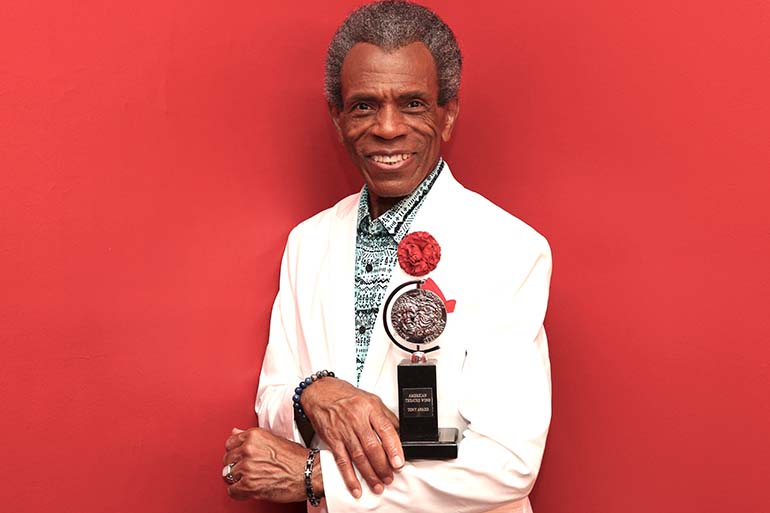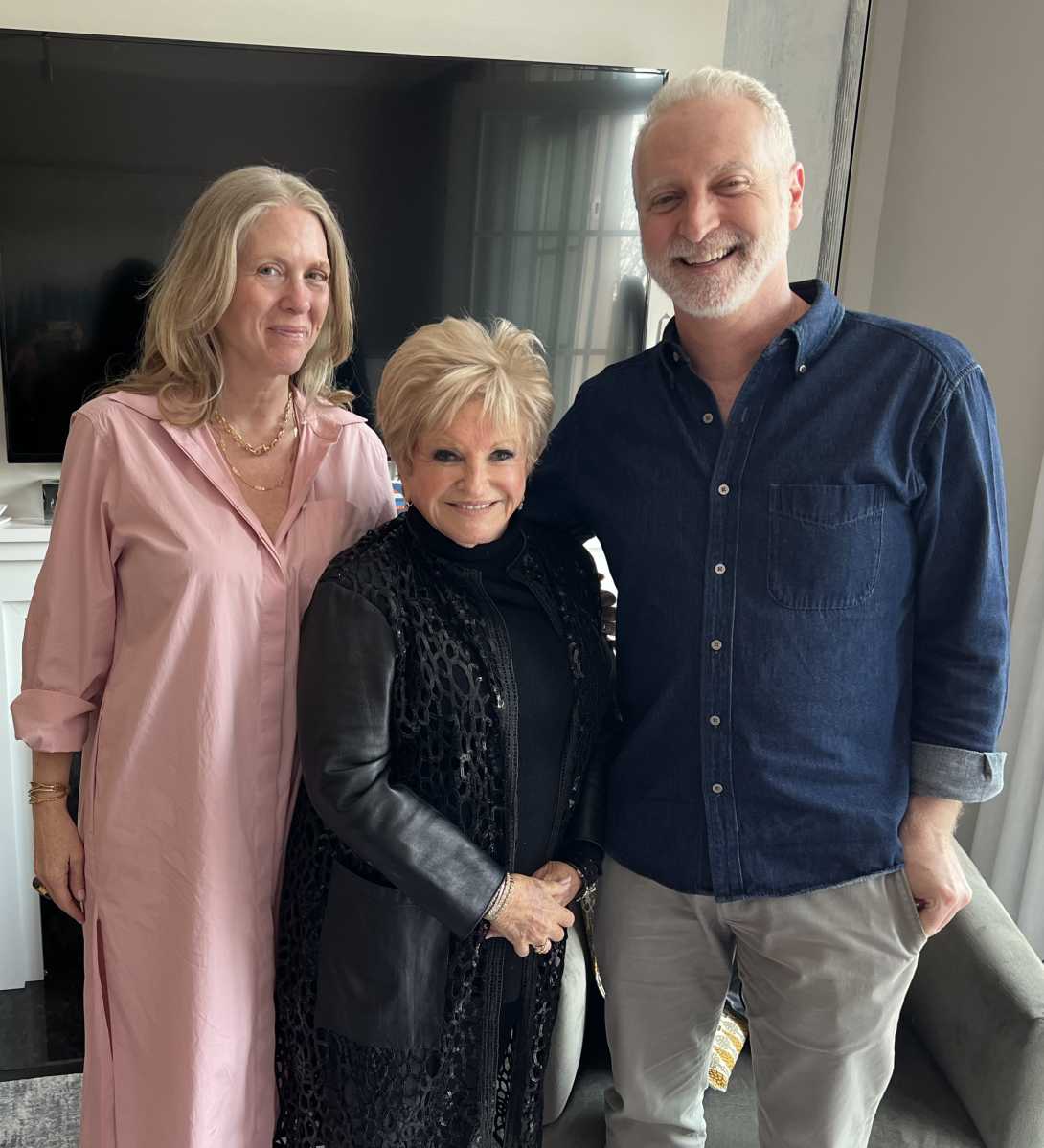We Sing It Anyway: André De Shields Strives for Change

In the Tony-winning Hadestown, Hermes, the story’s narrator, is all-knowing but unable to change the doomed love story of Orpheus and Eurydice, and the musical is driven by his telling the story to the audience again and again, night after night, knowing that the tragic pair is destined to be doomed. “But,” says the omniscient Mr. Hermes, “we sing it anyway.”
André De Shields, a prolific Broadway actor whose career spans many decades and cultural movements—he was in the 1969 production of Hair, played the title role in The Wiz and many others—feels as mythical and larger-than-life as Hermes. But while Hermes continues to sing the same song over and over, hoping that one day the ending will change, De Shields won’t settle for hope.
Anyone who’s seen Hadestown has fallen in love with the achingly beautiful score, the themes of loss and hope and the bittersweet but uplifting message. When I read that De Shields would appear (with many other theater luminaries) in Bay Street Theater and Sag Harbor Center for the Arts’ 29th Annual Starry Night Virtual Gala, it seemed the perfect fit in a season when hope is essential but more is needed.
The seasoned actor is not interested in talking about the highlights of his career, or the particulars of the Bay Street gala, even. A discussion with the man instead reveals a brilliant, wise person who will do and say what he can to bring about positive and vital change.
De Shields, 74, won his first Tony Award in 2019 for Hadestown and looks at that moment as a turning point, not for his career—which has been filled with acclaim and praise—but for his life.
“It was a message from the universe saying, ‘We are now going to conspire with you. You’ve paid your debts. You’ve sown your seeds. It’s now to reap what you’ve sown, it’s time to harvest,’” says De Shields. “Just as clearly as it was when I won the Tony, it was equally clear to me that part of the lessons I’m learning from the pandemic is, after reaping such an abundant harvest, one must allow the field to lay fallow before one sows more seeds.”
With Broadway dark, it’s given De Shields time to pause and think. “I’ve stopped. And I’ve invited visitation into my home, and said, ‘Sit down and have a cup of tea. Now, why are you here, what am I supposed to learn from your visitation?’” he says. “And what I understand is that the universe is speaking to us using Mother Nature as its mouthpiece, saying, ‘This isn’t what I meant by subduing the earth…now it’s dying and you aren’t any the wiser.’ This crossroads is an evolution of history and humankind. And you’re not getting good grades! As a matter of fact, I’m giving you demerits.”
As we talk about the confounding resistance of some segments of the public to wearing masks, I mention how scary it is to watch people break guidelines and behave badly. De Shields stops me there. “It doesn’t help to be scared,” he declares firmly. “Don’t be scared. Be brave. Be courageous. Stick your chest out, because this arrow is aimed right at you and me. This is an opportunity for everyone to stand up and say, ‘I am Spartacus!’” After a moment, he resumes, “You do know that movie, right?”
De Shields, who is black and identifies as queer, clearly doesn’t believe in fear. As he looks at the terrible injustices done to people of color and the reckoning that is currently taking place, he pauses when asked about his feelings on the matter. “Let’s tell the truth,” he says bluntly. “If you are a black person, particularly a black man in the United Plantations of America, your entire life is lived with a smoldering rage. So the rage didn’t start with this pandemic, and it didn’t even start with the crucifixion of George Floyd, but the pressure cooker, the valve, is spewing steam because it’s about to explode. The young people who are now doing the protesting in the streets, I believe, have a better understanding of it than most people, probably because they have a longer retrospective perspective that the progress we’ve made does not match the reversal in our approach to solving problems. And they’re not taking ‘go slow’ for an answer, as my generation had to take.
“I am an unreconstructed hippie,” De Shields continues, noting that his first professional gig was Hair. “I still believe in the song ‘Aquarius’—‘Peace will guide the planets and love will steer the stars.’ What I have recognized in retrospect, however, is that when we were singing ‘This is the dawning of the Age of Aquarius,’ we were off by hundreds of years.”
De Shields has given many virtual talks during the quarantine, often to young people, children of color and LGBTQ+ kids, and his message is matter-of-fact. “Diversity, equity and inclusion aren’t constructs we had to invent,” he says. “If you look at nature, you’re in the presence of immense diversity, equity and inclusion. How did we f–k it up? How did we get the message that we are supposed to be separate? There’s nothing in the natural world that supports that. Nothing! That is what I say to the young people.”
As De Shields ends the memorable call with a simple “Ciao!” I am reminded of the ending of Hadestown. Orpheus and Eurydice have just met again, beginning the nightly cycle over, and the hope for them to have a happy ending is renewed. Hermes knows any chance for the story to change is a long shot, but he looks to the audience one last time. “We’re gonna sing it again.”
See André De Shields and other Broadway stars in Bay Street Theater’s 29th Annual Starry Night Virtual Gala on Wednesday, July 22. For more information, visit baystreet.org.



